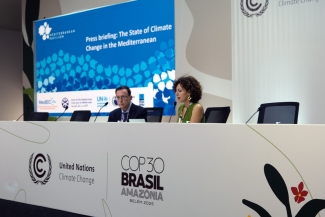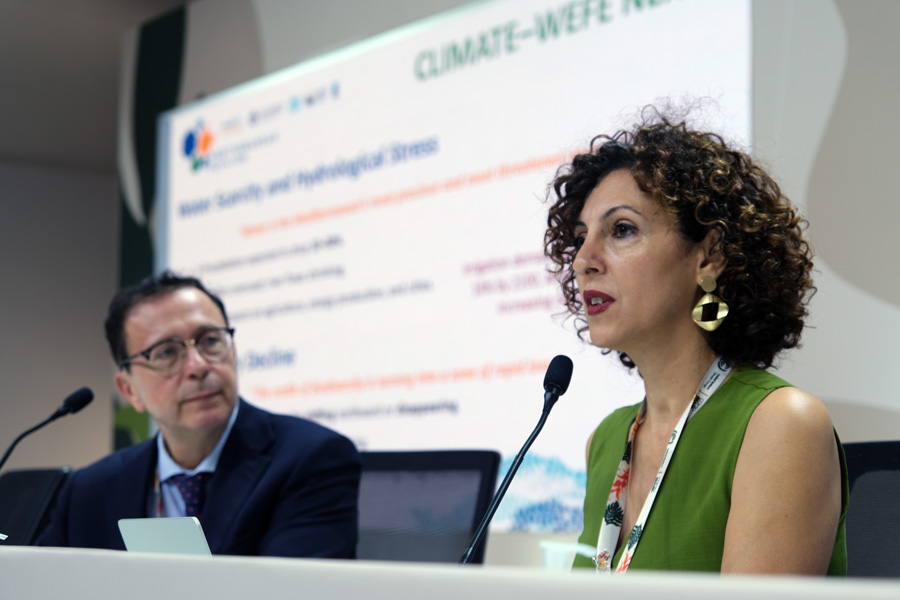COP30: The Mediterranean is a climate hotspot, unveils latest scientific findings

The Mediterranean region once again emerged as a central focus at COP30 in Belém – this year widely seen as the epicenter of global change. With the region warming 20% faster than the global average and facing severe water stress, accelerating biodiversity loss and rising public-health risks, scientists warned of escalating impacts. “Everything the planet faces due to global change, the Mediterranean faces first and worst,” said Prof. Magda Bou Dagher Kharrat, Principal Scientist at the European Forest Institute’s Mediterranean Facility (EFIMED) and part of the scientific advisory Board of the network of Mediterranean Experts on Climate and environmental Change (MedECC) network, during a press conference held in Belém, Brazil.
The scientific findings, drawn from the latest available research Mediterranean Assessment Report (MAR1), presented by Prof. Bou Dagher Kharrat, alongside Grammenos Mastrojeni, Senior Deputy Secretary General of the Union for the Mediterranean (UfM), reaffirm that the Mediterranean is a global climate hotspot. Average temperatures in the region have already risen by around +1.5°C, with projections reaching up to +5.6°C by 2100. Precipitation is expected to decline by 10 – 30%, increasing pressure on agriculture, energy systems and urban infrastructure. Coastal vulnerability is particularly acute: sea levels are rising by 2.8 mm per year, and a one metre rise by the end of the century could redraw the Mediterranean coastline, threatening cities such as Alexandria, Venice, Barcelona, Tunis and Izmir. Up to 20 million people could face permanent displacement if current trends persist.

In this context, UfM and MedECC renewed their call for urgent, coordinated climate action. Mastrojeni underscored the strategic value of the Mediterranean Pavilion at COP30, describing it as “a platform for projecting a unified Mediterranean voice and raising the profile of a region that often goes unnoticed in international negotiations”. Now in its third edition, the Pavilion aims to transform scientific evidence into political momentum by mobilising governments, regions, cities, financial institutions, civil society and youth to fast-track climate solutions across the region.
EFIMED is also present at the Pavilion, showcasing the project Entangled Destiny: Humans and Trees of the Mediterranean. Through virtual-reality experiences and demonstrations of products and fruits from three iconic Mediterranean tree species – olive, carob and stone pine – the project highlights the deep relationship between people and nature, showing how natural and cultural heritage approaches can strengthen resilience across these interconnected landscapes.
Looking ahead, the UfM is preparing the Second Mediterranean Assessment Report (MAR2), expected in 2026, while advancing practical tools to scale action. Both institutions stressed that the Mediterranean’s future hinges on collective resolve. Prof. Bou Dagher Kharrat concluded with the strong statement made by the president of COP 30, André Corrêa do Lago: “Either we decide to change by choice, together, or we will be imposed change by tragedy.”


